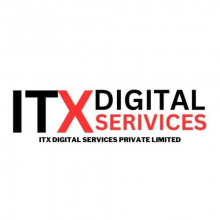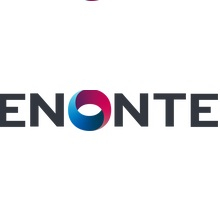
There are 12 Companies in Sri Lanka
that provide Disaster Recovery Services!
Sri Lanka is and has been for some years always been considered in the top 50 countries to outsource services, which is also related to the IT industry being one of the most important industries in the country. The history of the industry in Sri Lanka started in 1976 with the creation of the Computer Society of Sri Lanka, but the Business Process Outsourcing (BPO) industry started around the year 2000, and its development has been increasing since then to become one of the top destinations for foreign countries to outsource their services.
Discover Top IT Companies in Sri Lanka specialized in Disaster Recovery and other related services. Find the best IT service providers for your projects.
Disaster recovery services are like a safety net for your business's data and operations. They help you prepare for unexpected events like natural disasters or cyberattacks, ensuring that you can quickly recover and continue your business even in challenging circumstances.
More than 327 verified IT companies specialize in providing disaster recovery services. These companies have expertise in creating and implementing strategies to protect your data and IT infrastructure. Well-known IT companies offering disaster recovery services include IBM, Dell Technologies, and Hewlett Packard Enterprise (HPE).
Handpicked companies • No obligation to hire • 100% risk-free
Featured Companies in Sri Lanka
This month, the following Disaster Recovery companies managed to provide an outstanding service and support. It's worth taking a look.
A fast-growing IT and business solutions company, empowering global businesses with cutting-edge technology and digital innovation.
LKProfessionals delivers end-to-end IT services, empowering businesses with innovative, reliable, and scalable digital solutions.
Explore Top Disaster Recovery Companies in Sri Lanka
Techseya is a leading software and digital innovation maker in Sri Lanka.
Lapnos is an international development firm that works with governments and public institutions across South Asia and Africa.
Services:
Cyrus Information Technologies is a leading solutions integrator specializing in hardware, software, managed services and tech support company
ITX Digital Services Private Limited is a leading provider of comprehensive and tailored IT solutions, empowering small businesses to achieve their
CYBER HUSTLE is all about Empowering your Digital Game. We are a thriving Web design & Digital marketing agency based in Colombo, Sri Lanka.
Services:
Stalione Group is your globalized, reliable business solutionist, specializing in providing technology-driven solutions.
Our aim is to give you the best possible solution, using the best technology with exceptional customer service to keep your minds at ease.
Expediting Business Outcomes
Filter Disaster Recovery Companies in Sri Lanka by Cities
Find the right tech company near you or from a specific city. Some of the best companies might be located in smaller cities.
Find more Disaster Recovery companies around the world
TechBehemoths is the world's most advanced and user-friendly platform to match IT Companies with real clients without hustle.
The IT Industry in Sri Lanka: Companies, Insights & Data
Sri Lanka has consistently been considered one of the top 50 countries for outsourcing services. This status is also related to the country's IT industry being one of its most important sectors. The history of the industry in Sri Lanka started in 1976 with the creation of the Computer Society of Sri Lanka, but the Business Process Outsourcing (BPO) industry started around the year 2000, and its development has been increasing since then to become one of the top destinations for foreign countries to outsource their services.
The country is a development center for many big companies from all over the world, such as J.P. Morgan & Co., Qatar Airways, Microsoft, and Google, and other companies from countries like Japan, Sweden, Norway, North America, Australia, and the UK. It is estimated that the profit of outsourcing services to Sri Lanka can cost 70% of the price it would cost in the same country as the companies.
The next projection of the future for the country is to reach 5 USD billion in exports by 2022 and create 200.000 jobs. Related to this data, the country also achieved a target of 1 USD billion in the year 2016. In the first 7 months of 2025, the total exports are worth $10 billion. The ICT sector reached approximately $1.7 billion, and by 2030, is expected to reach $5 billion.
With the fast growth of the IT industry, the government took action to boost the possibility to be able to learn IT-related technologies in the country and improve IT education in the country. Sri Lanka also ended the Indo-Sri Lankan “Comprehensive Economic Partnership Agreement” because it was causing unemployment for Sri Lankan professionals.
Why Should You Work With Sri Lankan Companies?
Some of the reasons for working with IT companies from Sri Lanka are the low costs of outsourcing the services there, and also the good education of the country’s professionals. It is estimated that the costs can be 30% lower. Also, the minimum wage in Sri Lanka is €89.37, and we will talk in-depth about this in the following section.
The education in the IT sector is rich in knowledge because the IT industry is one of the most important ones in the country. You can find highly educated graduates, and also, there’s one more aspect to talk about, and it is the law.
The law about foreign business and commercial law follows the principles of British commercial law and has an independent judiciary. Sri Lanka has also signed some international treaties about intellectual property rights, electronic transactions, and computer crimes, and it is one of the most rigorous in this region. In addition to this, the country has signed a Free Trade Agreement with Singapore (SLS FTA) that eliminates 80% of all tariff lines through staging periods of up to 15 years, and this has come into force since 1st of May 2018.
Their English level is better in relation to other neighboring regions, especially in the city zones, and they are friendly by nature, which makes doing business so much easier.
What to Know When Working With IT Companies From Sri Lanka?
When thinking about working with IT companies from Sri Lanka, you have to be aware of the geopolitical situation of the country and its past, as well as the current situation of the sector. First of all, when talking about minimum wage in Sri Lanka being $89.37 a month (the equivalent of 27.000 rupees, the official coin of the country), you can think about why there’s only a 30% difference between outsourcing the projects to this country with such a big difference in salaries, and the answer is lies in the difference in purchasing power and payment gap between employees and employers that earn a huge profit from these operations. This means that you can have workers of a certain quality, but not always comparable to more developed countries, with better salaries and work conditions.
Also, you need to be aware of the country past and present history, and this includes a very recent civil war that lasted 26 years (from 1983 to 2009), a sometimes unstable security situation in relation to the terrorist attacks suffered from moderate frequency, the last one was on April 2019 and talking about this last attack, Sri Lanka is also a very conservative and religious country, especially for women (Buddhism is part of life in 70% of the people).
Instability, the wage gap between the richest and the poorest, and common scams, not only for tourists but also for business, are things to be aware of when doing business with IT companies from Sri Lanka.
How Reliable Are IT Companies From Sri Lanka?
To answer this question, we will have a look at some studies and other parameters to be able to measure the reliability of Sri Lankan IT companies. We have to refer to a 2008 study by the University of Moratuwa in Sri Lanka, which we will take with a grain of salt for the few objective references that can be found on this subject, and the source of the information. We will also take into account other aspects in relation to the other questions we answered above.
There’s a case study called “Reliability of effort estimates in offshore software companies in Sri Lanka” that can be found in the Digital Library of the University of Moratuwa. The goal is to find out the reasons affecting the reliability of projects in Sri Lanka's offshore IT organizations and recommendations made as a result of this research study.
This case study concludes that the credibility and reliability of IT companies in this sector are subordinated to subjective beliefs of concrete experiences of prejudice, although, from the data we know, not all unreliability is due to this, as Sri Lanka is a country where common scams are certainly frequent. This can apply to the IT industry, but not with the same magnitude.
To conclude this section, we will say that the reliability of IT companies is certainly compromised by the fear of fraud, but as in every region or country, there are always good companies and bad companies. It is advisable to find companies with proven reliability to avoid fraud, and that work with the international standards of quality.
How Does the IT Industry in Sri Lanka Relate to the Neighboring Regions/Countries?
To start developing this section, we will analyze one important and basic aspect of outsourcing projects to this type of country that is still developing. Internet access could potentially curtail the industry’s growth. Although local telecoms operator Mobitel has developed the implementation of 4.5G LTE technology. The average connection speed is 23.77 Mbps in the country, in relation to other countries: Indonesia (28-30), India (136.53), Malaysia (168.94), and Vietnam (163).
Another aspect that can influence the industry development is the high rental prices in Colombo’s commercial property sector, which is the most populated city in the country, although it is not the capital of Sri Lanka. When outsourcing services, one of the most important things is cost reduction, so this is an important aspect to talk about. This aspect in the neighboring countries is less problematic because their development of the industry is more advanced at this time.
Sri Lanka is surrounded by one of the giants of outsourcing services, which is India, a very powerful country that remains untouchable in position number 39 in accordance with the 2024 Global Innovation Index, where Sri Lanka remains in number 89.
Conclusion
The conclusions of this short analysis on Sri Lanka IT industry are as follows, Sri Lanka is one of the top 20 best Business Process Outsource destinations, and the biggest industry activity is outsourcing services, you have to be aware of the unstable situation and the specific characteristics of this country such as internet connection, reliability of the industry, IT level of education of the graduates in this country and of course prices, for this it is recommended to work with companies that have proven reliability to be sure that any frauds will occur, and take advantages of lower costs of outsourcing services to this country.
What is Disaster Recovery and what are its benefits for your projects?
Disaster recovery services are like a safety net for your business's data and operations. They help you prepare for unexpected events like natural disasters or cyberattacks, ensuring that you can quickly recover and continue your business even in challenging circumstances.
More than 327 verified IT companies specialize in providing disaster recovery services. These companies have expertise in creating and implementing strategies to protect your data and IT infrastructure. Well-known IT companies offering disaster recovery services include IBM, Dell Technologies, and Hewlett Packard Enterprise (HPE).
Disaster recovery service providers use a range of tools and technologies to safeguard data and ensure business continuity. These include backup and recovery software, cloud storage solutions, virtualization technologies, and monitoring systems. Popular cloud platforms like Amazon Web Services (AWS) and Microsoft Azure also play a crucial role in disaster recovery.
Disaster recovery services are typically included in a suite of services that also address business continuity and risk management. Other related services may include:
-
Business Continuity Planning: Developing comprehensive strategies to keep your business running during disruptions.
-
Cybersecurity Services: Protecting against cyber threats and data breaches, which are often a cause of disasters.
-
Risk Assessment: Identifying vulnerabilities and potential threats to your business.
-
Emergency Response Planning: Preparing for immediate actions in the event of a disaster.
-
Data Protection Services: Implementing data encryption, access controls, and data loss prevention measures.
Selecting the right IT company for disaster recovery services requires evaluating their experience, the comprehensiveness of their disaster recovery solutions, and their responsiveness in case of an emergency. Look for providers who offer tailored disaster recovery plans that align with your specific business needs and recovery time objectives (RTOs).
Disaster recovery service providers are essential for various projects and scenarios, including:
-
Data Centers: Ensuring the continuity of critical data center operations.
-
E-commerce Websites: Protecting online businesses from downtime due to technical issues or cyberattacks.
-
Healthcare Systems: Safeguarding patient records and medical systems to ensure uninterrupted care.
-
Financial Institutions: Meeting regulatory requirements for data protection and business continuity.
-
Manufacturing Plants: Minimizing production disruptions caused by equipment failures or supply chain interruptions.
Disaster recovery services are crucial for companies of all sizes and industries, including:
-
Small Businesses: Protecting essential data and ensuring minimal downtime.
-
Enterprises: Managing complex IT environments and maintaining regulatory compliance.
-
Healthcare Providers: Safeguarding patient records and critical medical systems.
-
Financial Institutions: Ensuring uninterrupted banking and financial services.
-
Government Organizations: Maintaining public services and data integrity during emergencies.
Disaster recovery is not a one-size-fits-all solution. It's essential to conduct a risk assessment and work with a disaster recovery service provider to develop a tailored plan that matches your business's specific needs and budget. Regular testing and updates of your disaster recovery plan are also crucial to ensure it remains effective as your business evolves.











